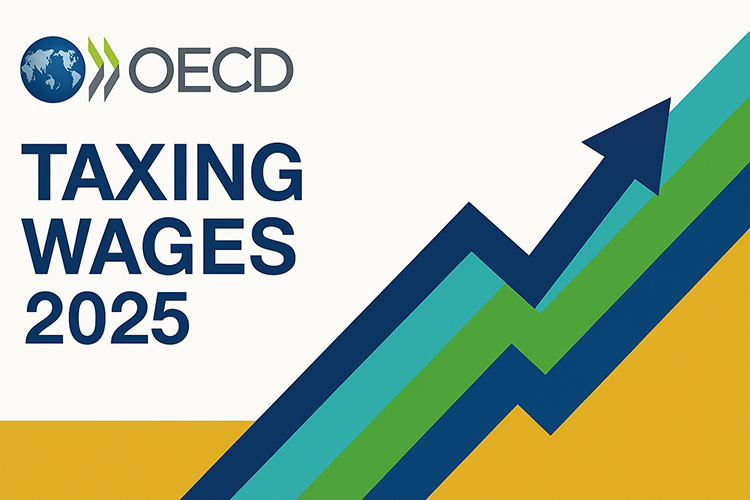2025-09-08
finance

Workers across the OECD saw modest increases in the tax burden on their wages in 2024, though households with children benefited from targeted tax reliefs, according to the OECD’s latest Taxing Wages 2025 report. The study shows that the average tax wedge – the share of labour costs taken by income tax and social security contributions, minus benefits – for a single worker earning the average wage rose slightly to 34.9% in 2024. The tax wedge represents the gap between an employer’s total labour cost and the employee’s net take-home pay, illustrating how much of the cost of employment is absorbed by taxes and contributions rather than wages. This marks the third consecutive annual increase, following declines during the COVID-19 pandemic. Tax wedges climbed in 20 of the 38 OECD member countries, declined in 15, and remained unchanged in three. Belgium retained the highest tax wedge at 52.6%, followed by Germany (47.9%), France (47.2%), Italy (47.1%), and Austria (47.0%). At the other end, Colombia recorded no tax wedge, while Chile (7.2%) and New Zealand (20.8%) had the lowest levels among OECD members. Households with children fared better. The average tax wedge for a single parent earning 67% of the average wage fell to 15.8%, declining in 24 countries, with particularly sharp drops in Poland (down 7.2 percentage points) and Portugal (down 4.1 points). Similarly, one-earner and two-earner couples with children saw the burden ease in most countries. By contrast, one-earner couples with two children at average wages recorded a slight average increase to 25.8%, though declines were registered in 20 member states. The difference in tax treatment between single workers and families narrowed modestly, reducing the fiscal advantage of households with children. The OECD highlighted that post-tax incomes improved in real terms in 28 member countries in 2024, a turnaround from the widespread declines of 2022 and 2023 when inflation eroded wages. A special feature of the report examines the role of tax credits and allowances in shaping personal income tax burdens. The analysis found that credits and allowances significantly boost household net incomes and increase the progressivity of personal income tax systems. On average, tax credits reduced liabilities by 1.9% for single workers, 4.7% for one-earner couples with children, and 7.3% for single parents. Allowances were even more significant, amounting to 15.9% of taxable income for single workers and nearly 28% for single parents. The OECD concludes that while effective tax rates on labour remain high in many member countries, well-targeted tax reliefs and benefits continue to cushion households, particularly those with children, against fiscal pressures. Full OECD report "Taxing Wages 2025" can be found on the link below:

